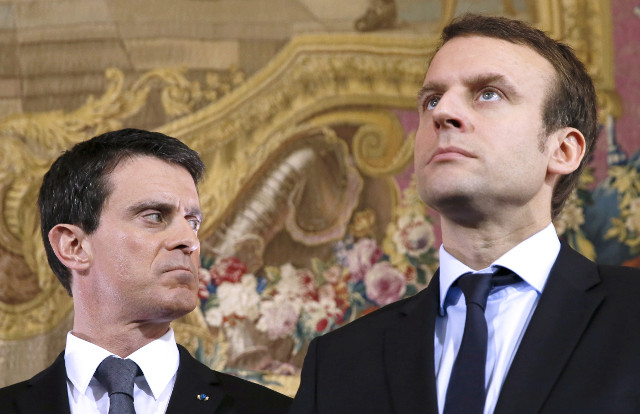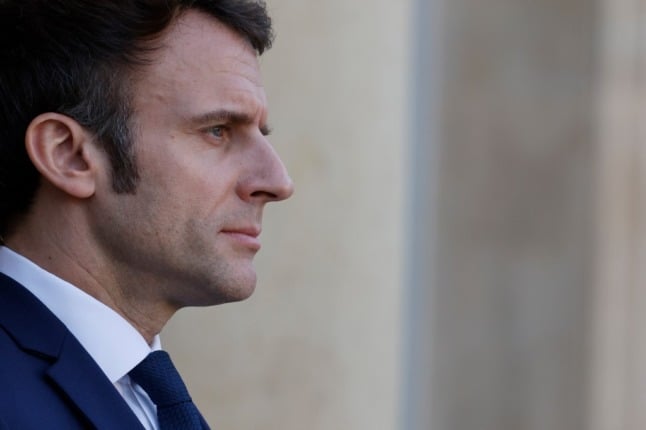Incoming French president Emmanuel Macron's centrist movement on Thursday unveiled 428 candidates for June's general election, 52 percent of whom are new to politics and half of whom are women.
The secretary general of Macron's La République en Marche (Republic on the Move), Richard Ferrand (see photo below), said that 52 percent of those chosen from more than 19,000 applicants “have never held elected office” and that 214 were women.
Among the newcomers were students, unemployed people, business chiefs and a farmer.
“The raison d'être of En Marche is the refoundation of French political life,” Ferrand told a press conference, adding that the candidates chosen to lead the battle for the parliamentary elections in June represent “the return of citizens” to the heart of political life.
Ferrand also announced that they would not accept former-PM Manuel Valls among their list of candidates to be MPs, however he said République en Marche would not put forward a candidate to stand against Valls.
Valls “didn't meet the criteria” of Macron's desire to renew French politics, said Ferrand, saying that the ex-Socialist prime minister had already served three terms in parliament.

Around 19,000 people had applied to candidates with Macron's movement, 71 percent men and 29 percent women, Republique en Marche revealed on Thursday.
The National Investiture Commission carried out hundreds of interviews with applicants, who had to meet several key requirements including having no criminal record or having been disqualified from standing for an elected position.
The candidates were also chosen for their values, which had to closely reflect those of the movement and political pluralism was also a selection critieria.
Some 93 percent of those who are fresh to politics are in jobs, while two percent are job seekers, four percent are retired and 1 percent are students.
The youngest candidate is 24-years-old and the oldest is 72, whilst the average age is 46.
Pro-Europe centrist Macron, 39, was elected on Sunday after promising a “revolution” that would bring fresh faces into France's stale political landscape and end the pattern of power alternating between traditional parties.
Macron has promised that half will be complete newcomers, meaning a diverse range of figures from business, civil service, activist groups and academia are set to make their first foray into politics. Half of the candidates will be women.
“The second act in the redrawing of our political life will be the building of a parliamentary majority in the elections in June,” the secretary general of the movement, Ferrand, had told reporters on Monday.
The nomination process is a balancing act for Macron and represents major risks for his presidency, which will begin formally on Sunday when he takes over from Socialist Francois Hollande.
Without his own parliamentary majority, he will find it hard to push through his planned reforms of the labour market, pensions, unemployment benefits or education.
Many of his newcomers, which have been approved by a nomination committee, will be up against seasoned politicians with long careers and local networks of activists and supporters.

And there is also the risk of scandal if anyone with a chequered history slips through the vetting process of the roughly 15,000 applications sent online.
Another dilemma is the case of former government colleague and ex-Socialist prime minister Manuel Valls.
Valls, a one-time centrist ally who lobbied for Macron to join the government in 2014, on Tuesday declared his desire to stand for Macron's party in the parliamentary elections.
But relations between him and Macron frayed during their time in government over differences on policy, and Valls was an outspoken critic of Macron's decision to start his own political movement last April.
The Spanish-born MP from the constituency of Evry, a suburb of Paris, was abruptly told he had to apply online and should not assume he would be accepted.
French media have quoted him telling En Marche's nomination chief Jean-Paul Delevoye that he was unable to send his application, increasing the sense of humiliation.
“I don't understand. I'm clicking and clicking on your site but it's not working,” Valls was reported to have said by Europe 1 radio.



 Please whitelist us to continue reading.
Please whitelist us to continue reading.